What is the appropriate heart rate control for patients with hypertension?
Hypertension is very common in our country and is very harmful to the health of our population. According to the statistics of the National Health Commission in 2017, the number of people with high blood pressure in the country at that time was as high as 270 million people, accounting for 6.61% of China's total health costs. The burden of hypertension on our country is undoubtedly heavy. However, for people with hypertension, there is also an immeasurable amount of pressure, both financially and mentally.
Most people find out that they have high blood pressure during an accidental medical checkup, and then control their blood pressure with antihypertensive medication. Indeed, many patients have their blood pressure under perfect control with the help of antihypertensive drugs. However, there are still a small number of patients whose blood pressure is relatively well controlled, but every time they measure their blood pressure, the problem of a fast heart rate always emerges. So I'm going to give you a detailed explanation of the question, "What is the appropriate heart rate for hypertensive patients?"
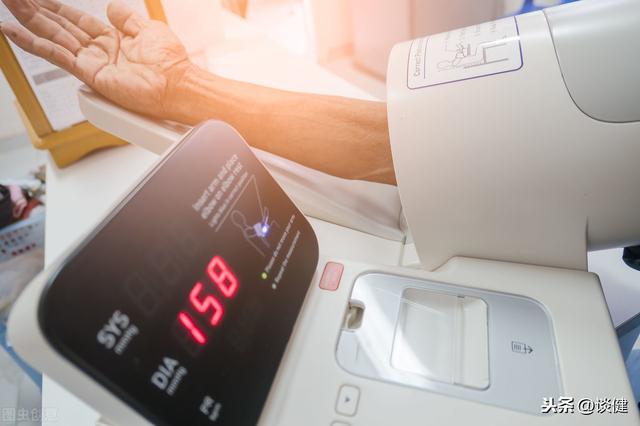
What heart rate?
1, heart rate, as the name suggests, is the number of times the heart beats per minute. Our healthy people's heart rate is generally in 60-100 times, the average is about 75 times, more than not, low also not. This is like driving on the highway, the minimum speed limit is 80km, the maximum speed limit is 120km. low speed, easy to cause tailgating; high speed, easy to speed violation. Similarly, the heart rate is lower than 40 or less, the blood volume of cardiac discharge is reduced, the whole body does not get the corresponding blood supply, there will be fainting, at this time we have to install a pacemaker. Heart rate is too high, and often have to perform first aid.
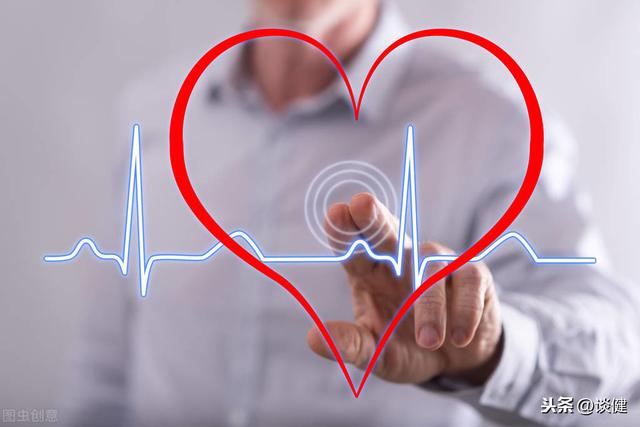
2, in general, in a quiet state, each contraction of our heart (can be simply each beat), will pump 70ml of blood to our aorta. if a person's heart rate is 80 times, then he will be pumped by the ventricle of the blood will reach 5600ml per minute.In this respect, the faster the heart rate, the more the heart is working and the more stress it is under.This is just as many of us earn hundreds of thousands of dollars a month, and he is very good at his job, so he must be very active, and it is natural for him to bear a great deal of work.
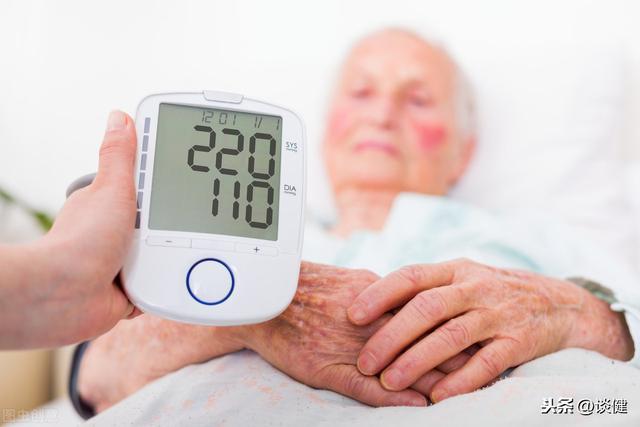
Relationship between hypertension and heart rate
1, hypertension is the blood flow process on the side of the blood vessel wall pressure, that is, the pressure of the blood vessels throughout the body, including the pulmonary artery, the aorta and so on. And the left ventricle wants to pump blood into the aorta, which originally could be accomplished with a little force. Now that the pressure in the aorta is higher, there is no doubt that the left ventricle needs to contract harder. If the left ventricle holds the attitude of indifference, tube you pumped out, pumped out, the human body is not the end of the calf. Simply put, high blood pressure increases the pressure of the heart pumping blood into the arteries, theCardiac afterload.
2, originally in high blood pressure, the heart is already under greater pressure because of the pumping of blood. At this time, the heart rate increases, is undoubtedly a huge blow to the heart. The heart is like the origin of a river, to the various streams drainage, the result of the various streams are some blockage caused by increased water pressure, to add insult to injury is their own internal problems, has been prompted by their own outward drainage. This double pressure will put a huge burden on the heart. When the heart is unable to bear, facing the rhythm of exhaustion, that is, heart failure.
3, medical knowledge aside, normal people with a fast heart rate will be difficult, a hypertensive patients with increased heart rate, obviously will feel panic, palpitations, and even seriously affect the patient's quality of life.
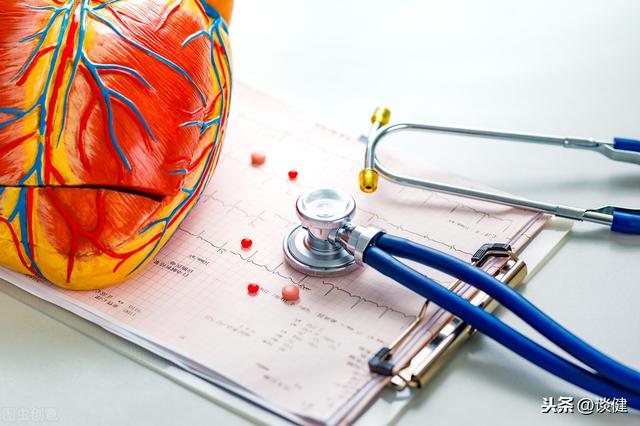
What is the appropriate heart rate control for patients with hypertension?
Many people with high blood pressure have an increased heart rate, and when the blood pressure is controlled, the heart rate is not effectively controlled. As I said above, the interaction between heart rate and high blood pressure can lead to excessive pressure on the heart. The heart as the target organ of hypertension damage, in order to prevent damage to the heart, in the control of blood pressure at the same time, should be strictly control the heart rate.
A study has shown that the degree of increase in resting heart rate is directly proportional to the degree of hypertension and development of target organ damage and is associated with its prognosis.
1. For the average patient with hypertension accompanied by a rapid heart rate of more than 80 beats/min, it is recommended that while controlling blood pressure, the heart rate should be controlled to60-75 beats/minute.. Medications can be beta-blockers such as metoprolol tartrate and metoprolol succinate. Noteworthy.Beta blockers should not be used in severe bradycardia, bronchial asthma, diabetes, peripheral vascular diseaseand other groups of people. Care should be taken to strictly monitor the heart rate during the day.
2, If the hypertensive patient is accompanied by target organ damage, such as heart failure, kidney failure, etc., and the heart rate exceeds 70 beats/minute, the patient must be intervened by medication, targeting at the55-60次/分。
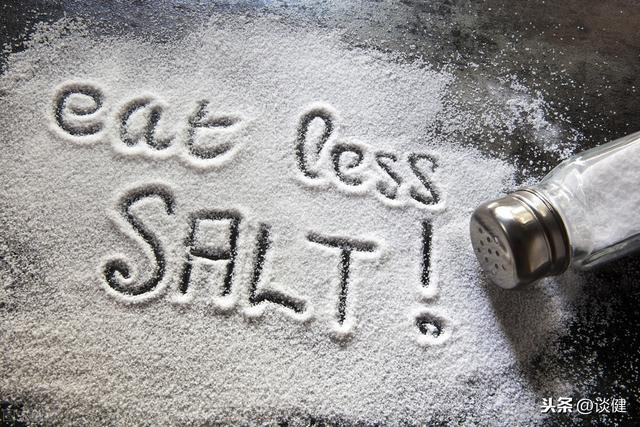
3. For patients with hypertension accompanied by a rapid heart rate, attention should be given toLess salt, light diet, no smoking, avoid obesity. The usual way toRelaxed physical activityMainly, no strenuous exercise.
4, for some secondary hypertension patients, in the lowering of blood pressure at the same time, should actively treat the primary disease, such as renal failure, pheochromocytoma, renal vascular hypertension.
5, hypertension is usually treated with a combination of drugs, we lower blood pressure, theYou shouldn't lower your blood pressure too much.This should be done in a gradual manner, eventually resulting in blood pressure below 140/90 mmHg for normal hypertensive patients, 130/80 mmHg for diabetes mellitus with or without nephropathy, and systolic blood pressure in the elderly at 150 mmHg. This can be lowered slightly if one is able to tolerate it.
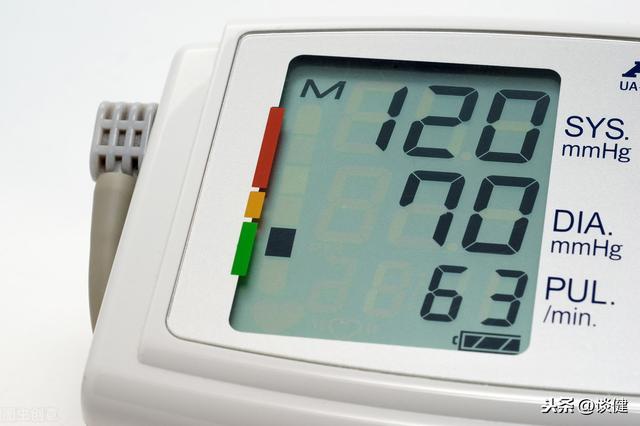
Conclusion:
Hypertension is a chronic disease, even though it can cause great harm to our bodies. But I believe that as long as we can build up our confidence and utilize a combination of diet and medication, we will be able to keep it under control at a desirable level. In addition for patients who have both high blood pressure and increased heart rate, they should pay closer attention to their health.
The textbook rule for a normal heart rate is 60-100 beats per minute, so is it true that if our heart rate is within this range it is definitely healthy? The answer is no, for hypertensive patients, heart rate control in what range is more of a university question, but also many hypertensive patients want to ask the question. Today, Dr. Zhang will talk about this issue.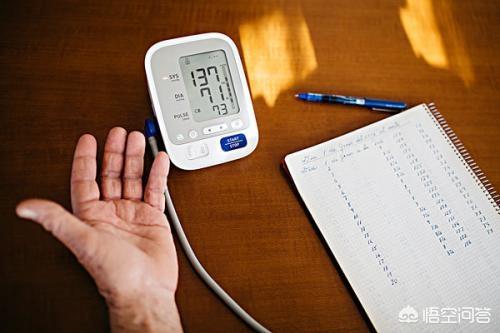
The electronic blood pressure monitors that are becoming more and more popular nowadays will display heart rate in addition to blood pressure. Why is it so designed? Because the faster the heart rate of hypertensive patients, the higher the chance of coronary heart disease in the future. The reason why electronic blood pressure monitors indicate heart rate is to make hypertensive patients pay attention to the importance and management of heart rate.
Currently in China's hypertension patients, thirty percent of patients can be said to be heart rate substandard, that is, the usual resting heart rate of more than 80 beats / min, and this phenomenon is particularly common in young hypertensive patients. In fact, this phenomenon is represented by elevated blood pressure accompanied by sympathetic activation, mostly those who usually live and work under stress, obesity, bad lifestyle easy to appear.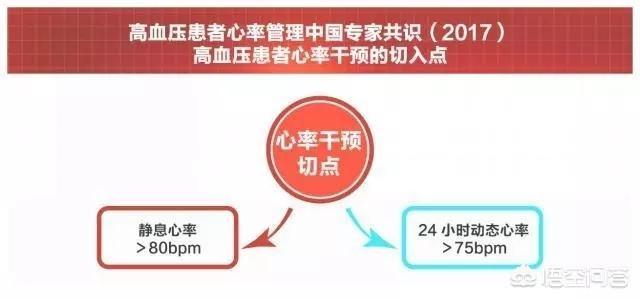
In addition to the most common hypertensive patients mentioned above, for those patients whose hypertension is also combined with coronary artery disease or heart failure, heart rate control should be more stringent, that is, below 70 beats per minute, which will allow these people to live longer.
In conclusion, hypertensive patients should pay special attention to controlling their heart rate, which can reduce the risk of coronary heart disease in hypertensive patients.
Hello everyone! I'm Dr. Yang, a general practitioner who focuses on blood pressure, glucose, lipid, and uric acid management. Let me answer the question.
Some hypertensive patients often only notice the high pressure and low pressure values of their blood pressure when measuring their blood pressure with an electronic sphygmomanometer, but tend to ignore the heart rate value. The value at the bottom of the sphygmomanometer display is the heart rate.
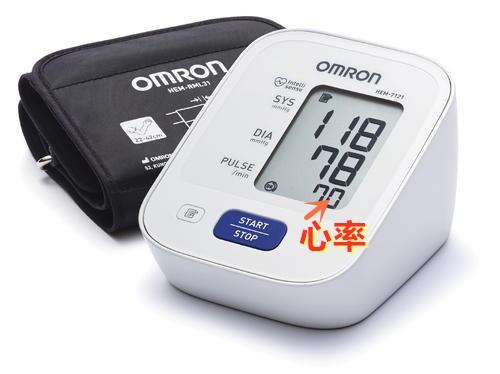
Heart rate is also very important for hypertensive patients, because increased heart rate is not only not conducive to blood pressure control, but also increase the risk of cardiovascular disease, especially early in the morning increased heart rate, the risk of occurrence is higher. Unfortunately, however, the phenomenon of increased heart rate often occurs in many hypertensive patients, and many people do not pay attention to it.
First, let's look at what might cause an increased heart rate?
In reality, many causes can cause our heart rate to increase, which can be broadly categorized as follows:
First, the physiologic increase in heart rate, theFor example, physiological tachycardia, emotional excitement, alcohol, strong tea and coffee;
Second, drug-induced increased heart rate, theExamples include atropine, epinephrine, and ephedrine, as well as diphenhydramine antihypertensive drugs that may cause the side effect of increased heart rate;
Third, disease-induced increased branching of the heart rate, theFor example, cardiovascular diseases such as acute myocardial infarction, heart failure, and hypotension, as well as systemic diseases such as anemia, infections, fever, and hyperthyroidism, can also cause increased heart rate.
Increased heart rate in hypertensive patients is often indicative of sympathetic nervous system overactivationThe excessive activation of the sympathetic nervous system can easily lead to vascular oxidative stress, affect vascular endothelial function, increase increase myocardial oxygen consumption, accelerate atherosclerosis, and thus increase the risk of cardiovascular disease. Therefore, hypertensive patients should also pay attention to heart rate control.
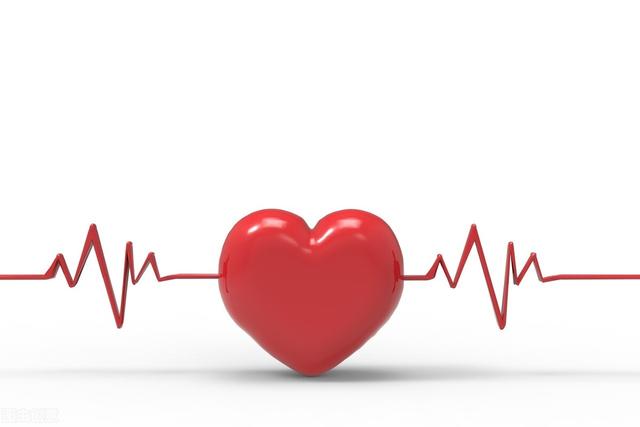
What is the appropriate heart rate control for patients with hypertension?
For us ordinary people, a heart rate of 60-100 beats/minute is considered normal, but for hypertensive patients, theA heart rate of 80 beats/minute or more is considered an increased heart rate, and a heart rate averaging 75 beats/minute throughout the day is also considered an increased heart rate if it is monitored by 24-hour ambulatory electrocardiography.Of course, the heart rate referred to here is the resting heart rate, which is the heart rate measured in a seated position after at least 5 minutes of quiet rest.
Therefore, usually the heart rate of hypertensive patients should be 60~80 beats/minute is more appropriate. But this is not absolute, if one has not only high blood pressure but also some other comorbidities, then one needs to look at it comprehensively.For example:
- In heart failure with hypertension combined with decreased left ventricular ejection fraction, the heart rate should ideally be below 70 beats/minute;
- For hypertension combined with atrial fibrillation, the heart rate should ideally be below 110 beats per minute;
- In hypertension combined with chronic stable coronary artery disease, the heart rate should ideally be 55-60 beats per minute;
- In hypertension combined with acute aortic coarctation, the heart rate should ideally be 50-60 beats per minute.
So, heart rate management is also going to vary from person to person.
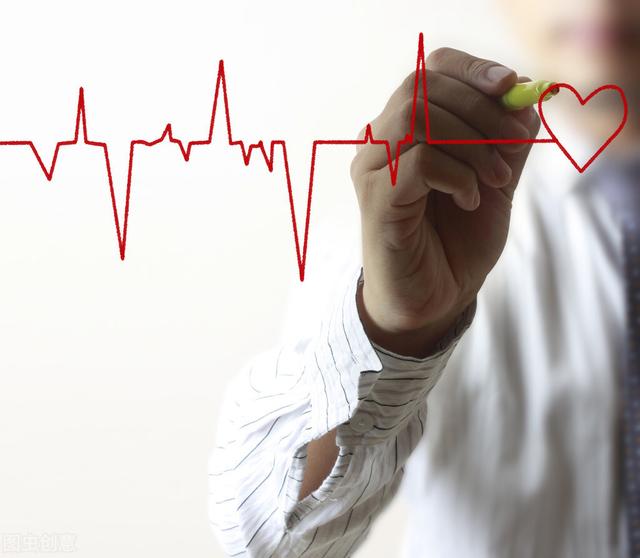
So how do hypertensive patients come to control their heart rate?
Having ruled out other causes and diseases of increased heart rate, there are two main ways in which we intervene in the control of hypertensive heart rate.One is a non-pharmacologic modality intervention and the other is a pharmacologic modality intervention.
Non-pharmacologic modality interventions:Do moderate aerobic exercise, eat a balanced diet, control your weight, stop smoking and drinking alcohol, and don't drink coffee and strong tea.
Pharmacologic approach to intervention:Mainly bisoprolol, metoprolol and other lorazepam; verapamil, diltiazem and other non-dihydropyridine calcium antagonists; alpha and beta receptor blockers such as Arolol, carvedilol. However, the use of drugs need to synthesize their own specific circumstances, it is recommended that the rational use of drugs under the guidance of the doctor.
Well, today will say so much, if you think that speak can also point a praise chanting ~ there are questions you can pay attention to me to get more related to health knowledge, thank you for reading!
What is the appropriate heart rate control for hypertensive patients?
If you say too much, people won't understand and won't be able to remember. Please just remember one sentence:A little slower would be better.。
The Diagnostics states that the normal range for heart rate should be 60-100 beats per minute. In reality, this range is a little on the high side. Most doctors consider a heart rate of over 90 beats/minute in a quiet state to be fast, while a heart rate of 50-60 beats/minute is normal for many people.
What are the effects of a fast heart rate?
1 Blood pressure will be higher.
With a fast heart rate, more blood will be ejected per minute, and your blood pressure will naturally be higher. Slowing down the heart rate is accompanied by a definite drop in blood pressure.
2 Increased myocardial oxygen consumption.
Rising blood pressure and a faster heart rate both lead to an increase in the work done by the heart and a rise in oxygen consumption. For patients with coronary artery disease, there is a risk of a relative lack of supply of coronary blood flow, leading to symptoms of chest tightness and chest pain.
3 Reduced blood supply to the heart.
The coronary arteries supply blood to the heart mainly during the diastolic phase of the heart, that is, when the heart is "resting". If the heart rate is accelerated, the diastolic period of the heart is greatly shortened, and the blood supply to the heart will be significantly reduced. It is easier to induce myocardial ischemia.
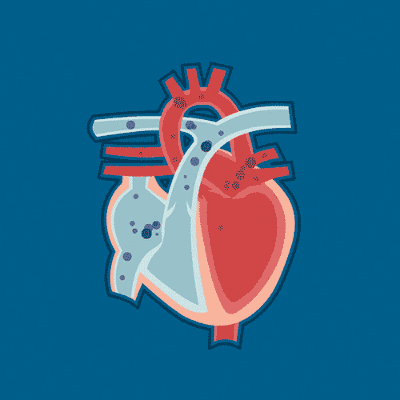
4 The heart has less time to "rest".
The heart doesn't get enough rest, and for people with heart failure, symptoms can get worse year after year.
As you can see, having a slower heart rate has many benefits, both for people with high blood pressure and for the general population.
But there's a limit to how slow your heart rate can go.
1To ensure a basic blood supply to the body.Heart rate should generally not fall below 50-60 beats/minute. Otherwise, dizziness, fainting and other symptoms of insufficient blood supply to the brain can easily occur.
2generalPeople with high blood pressure do not have to deliberately try to control their heart rate with medication.Any heart rate of 60-70 beats/minute can be considered ideal. between 70-80 is not bad.
3 For patients with coexisting conditions such as aortic coarctation, coronary artery disease, infarction, and heart failure, the relative control of heart rate should be stricter. Mostly around 60 is ideal.
4Patients with high blood pressure who have a fast heart rate, such as more than 80 beats per minute, may consider beta blockers when choosing antihypertensive medications to lower blood pressure while also slowing the heart rate.
Welcome to follow Dr. Zheng Baike, the health expert at your side.
I believe that we can see the high incidence of hypertension from real life, whether it is a family member or a colleague, there are always a few hypertensive patients around, and even some patients are only 30 or 40 years old. Although the appearance of these patients and normal people, as usual, work and life, but in fact, high blood pressure is like a time bomb, at any time may take the patient's life.
What is the appropriate heart rate control for patients with hypertension?
When it comes to what jeopardizes the life of hypertensive patients, it is definitely its complications. What cerebral hemorrhage, cerebral infarction, heart attack, coronary heart disease, heart failure, kidney failure and so on, these common diseases, are closely related to hypertension. Therefore, we have been emphasizing that high blood pressure itself is not fatal, and even many patients are symptomless, but it is precisely because of the lack of symptoms that patients are negligent in their vigilance, and as a result, they end up in serious trouble.
Among all the complications of hypertension, one very common one is cardiovascular disease, which is one of the most serious complications and the main cause of death from hypertension, and many sudden deaths of hypertensive patients are due to sudden cardiovascular accidents. The occurrence of cardiovascular complications, in addition to the long-term loss of control of blood pressure, there is another factor that can not be ignored, is the increase in heart rate.
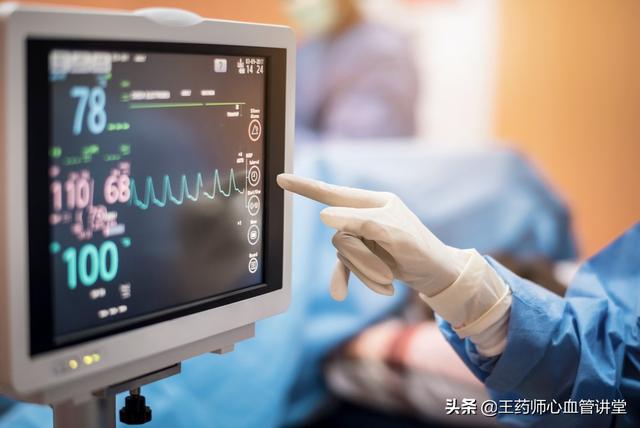
First, why are hypertensive patients asked to control their heart rate.
Let me tell you a case first. There was a patient with a history of hypertension for more than ten years. In addition to his high blood pressure, he had a heart rate of about 90 beats/minute, and the doctor told him that his heart rate was fast and asked him to pay attention to it. However, the patient always felt that his heart rate was fine if it did not exceed 100 beats/min, so he only paid attention to his blood pressure and never paid attention to his heart rate. Until summer, he often felt shortness of breath and panic, and thought it was because of the heat, so he didn't care. However, when he was moving something, he suddenly felt chest pain and then collapsed and died suddenly.
This is a tragedy for one patient, in fact, in real life, such cases happen often. The reason for the patient's sudden death, apart from hypertension, is also related to the long-term increase in heart rate. It was once shown that an increase in heart rate of 5 beats per minute increases their risk of adverse cardiovascular events by 14%, and an increase of 10 beats per minute increases mortality by 25%. In hypertensive patients, the total mortality rate is about 40% when the heart rate is kept at 75-84 beats per minute, while the mortality rate increases to about 60% when the heart rate is higher than 84 beats per minute. This is a fact.
Increased heart rate in hypertensive patients is dangerous because it increases the risk of cardiovascular complications. Not only that, but hypertension itself tends to increase heart rate, meaning that hypertensive patients are prone to having an increased heart rate. This is mainly due to the correlation between the mechanism of elevation of blood pressure and the mechanism of increase in heart rate. Elevated blood pressure is due to sympathetic nervous excitation, and over-activation of the sympathetic nervous system can lead to an increase in heart rate at the same time. Therefore, when blood pressure is out of control for a long period of time, the heart rate will also increase, and the increase in heart rate will in turn cause the blood pressure to continue to rise, which will form a vicious circle, aggravate the cardiac load, and greatly increase the risk of cardiovascular adverse events.
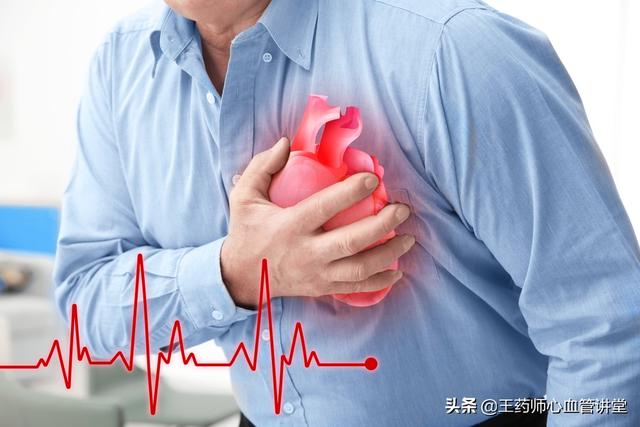
Secondly, what is the appropriate heart rate to control in hypertensive patients.
As in the case mentioned above, many hypertensive patients believe that the normal heart rate range of the human body is 60-100 beats/minute, so as long as it is to ensure that the heart rate is controlled below 100 beats/minute, it is a qualified heart rate. Nowadays, electronic sphygmomanometers have the item of recording heart rate, so it is very convenient for patients to monitor the heart rate. Only, if the patient does not know the standard range of heart rate control, it is useless to be able to monitor the heart rate all the time. Because from the beginning, the patient's perception is wrong.
According to clinical studies, it has been found that in about one-third or more of all patients with high blood pressure, the heart rate is higher than 80 beats per minute. Some people say it's okay to be higher than 80 beats/min. If it's a healthy person, maybe it's not a big problem. However, for hypertensive patients, the harm is more serious. That's because some studies have confirmed that a resting heart rate higher than 75 beats/min is associated with a significant increase in the risk of adverse cardiovascular events, and the risk is even greater for people with high blood pressure.
That is why hypertensive patients should never be satisfied with the standard of 100 beats/min. It is now clinically recognized that when the heart rate of a hypertensive patient exceeds 80 beats/minute, intervention must begin in a timely manner, and medication is usually required, commonly beta-blockers, such as Betalucil. This is why hypertensive patients are required to take medication for heart disease. The goal of lowering the heart rate in hypertensive patients should be less than 75 beats per minute. This is for patients with simple hypertension.
In addition, for special patients, the requirements are more stringent, mainly for patients with combined heart disease, such as patients with combined coronary artery disease, heart attack or heart failure, are required to control the heart rate at about 50-60 beats/min, if the heart rate is higher than 70 beats/min, it is necessary to intervene with medication as soon as possible. This is a key part of improving the patient's prognosis and prolonging his or her life.
I am Pharmacist Wang, dedicated to helping you manage your body by explaining complex and difficult disease knowledge in plain words. Your kudos are my greatest motivation! Also, if you have a family member who is struggling with hypertension related to heart rate control, please pass this article on to them!
Yesterday I saw a hypertensive patient with a blood pressure of 165/95 and a heart rate of 88, after which the patient was advised to take a diphenhydramine antihypertensive + a lorazepam.
The patient was puzzled after taking the medication, this antihypertensive drug has the effect of lowering the heart rate, will it slow down the reduction even more?
Dr. Wang is prescribing you this medication to bring your heart rate down.
Because hypertension can not simply lower blood pressure, if necessary, but also lower the heart rate, lowering the heart rate itself has two benefits, one is better to lower blood pressure, but rather a slow heart rate life long.
We all know that my heart rate of 60-100 beats at rest is considered normal, but this is only a theoretical concept. Various large studies and guideline recommendations in recent years have suggested that the relatively slower the heart rate, the better for patients with cardiovascular disease.
One of the pathogenesis of hypertension is called sympathetic excitation. Over-activation of the sympathetic nervous system is one of the important pathogenesis of hypertension, what does it mean? When the body's sympathetic nerves are excited, the body's heartbeat speeds up and blood pressure rises.
In daily life and work, due to high work pressure, heavy psychological burden, and poor lifestyle are all factors that lead to excessive activation of sympathetic nerves. This condition is also mostly seen in young people, so hypertension in young people is more of high blood pressure and fast heart rate.
By inhibiting sympathetic excitation, it reduces heart rate while facilitating blood pressure control. Not only that, but a chronically fast heart rate is a significant risk factor for cardiovascular disease and can significantly increase the risk of cardiovascular death. So, when we experience high blood pressure, we also need to keep an eye on the heart rate, and if it's fast, we have to find a way to bring it down as well.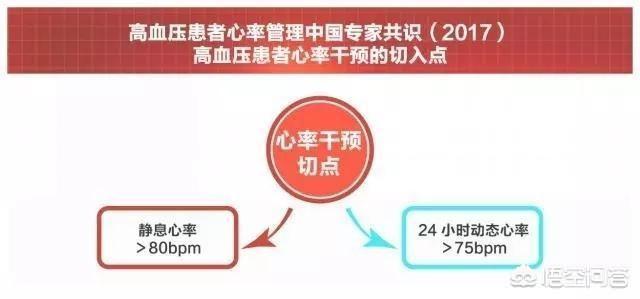
Studies have shown that more than 1/3 of hypertensive patients have a heart rate ≥80 beats/minute at rest. Hypertensive friends with heart rate at rest heart rate > 80, you need to lower the heart rate; this evaluation is sometimes inaccurate, we will do an ambulatory electrocardiogram, the average heart rate > 75, you need to lower the heart rate.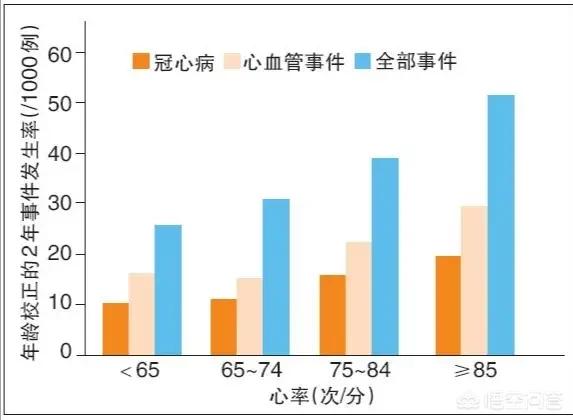
So, for those with high blood pressure, it's best to keep your heart rate below 80 beats at rest, closer to 60 is even better.
(Dr. Cardiovascular Wang formally authorized original protection, such as theft must be held legally responsible!)
Thank you! At present, the heart rate of hypertensive patients is generally controlled between 60 and 100 beats is relatively appropriate, that is, in a period of normal rhythm is enough. But it should also be judged on a case-by-case basis.
It is important to clarify the concept that the heart rate is a gradual fluctuation process, and there are many factors affecting the heart rate, but not only hypertension, including similar emotional excitement, the influence of drugs, the body's overall cardiac status of the uncertainty, may affect the heart rate. So he is only a range of factors, and occasionally once or twice too high or too low, he will not represent a clear change in the condition.
In fact, for hypertensive patients, as long as the heart rate is not particularly fast or slow, it does not need very special treatment, generally speaking, if the heart rhythm <40 beats per minute or >120 beats per minute, this situation is necessary to timely relevant treatment. Sometimes it is an abnormal rhythm pattern, not only through oral medication to maintain and improve, but also through timely surgical treatment, such as radiofrequency ablation surgery or cardiac pacing surgery, etc., so like these, it is a pathological condition, need to be improved in a timely manner.
Another point, must be clear whether the heart rate is normal or not, not only represents the concept of how many times per minute, but also to clarify what kind of a rhythm, whether the average whether in a certain period of time have accelerated and so on, these are certain precautions. So on the whole, if indeed the heart rate is abnormal state, caused by their own chest tightness, breathlessness, palpitations and panic and so on some of the situation, must go to the hospital in time to check, clear their own in the end is a kind of what kind of situation.
This clear diagnosis can be better treatment, otherwise there are many cases simply just oral medication, and can not see obvious improvement, and may even be more harmful to their own health.
It is recommended that you must clarify the specifics of your heart rate, and then proceed with further relevant treatments at a later stage to ultimately achieve a good goal of control.
I hope everyone is in good health!
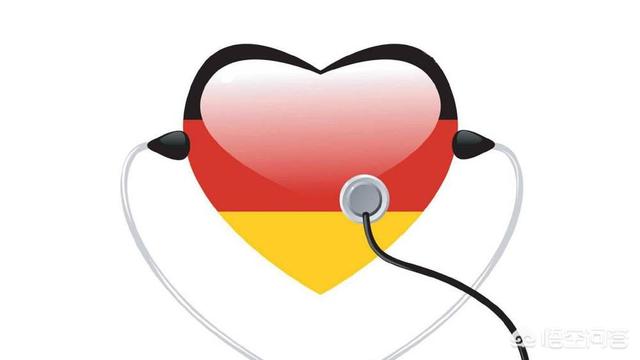 This is a very good question, many hypertensive patients are only concerned about how their blood pressure drops, which is not wrong, but the occurrence of cardiovascular and cerebrovascular disease, although inextricably linked to hypertension, but hypertension is not the only factor causing cardiovascular and cerebrovascular disease, a lot of other factors, such as elevated homocysteine, accelerated heart rate and so on can be independent of hypertension and cause cardiovascular and cerebrovascular disease.
This is a very good question, many hypertensive patients are only concerned about how their blood pressure drops, which is not wrong, but the occurrence of cardiovascular and cerebrovascular disease, although inextricably linked to hypertension, but hypertension is not the only factor causing cardiovascular and cerebrovascular disease, a lot of other factors, such as elevated homocysteine, accelerated heart rate and so on can be independent of hypertension and cause cardiovascular and cerebrovascular disease.
Unfortunately, hypertensive patients are more likely than healthy people to have these risk factors at the same time, these factors are equivalent to high blood pressure, greatly increasing the risk of cardiovascular disease, including the heart rate is a problem that can not be ignored, and the heart rate of hypertensive patients has become a predictor of the risk of cardiovascular disease brought about by high blood pressure, to see a set of results of this study The results of this study are as follows:
- Also in hypertensive patients, one patient's heart rateLess than 65 beats per minute, a patient's heartrate greater than 84 beats per minute, the risk of coronary heart disease in the latter is more than one times higher than in the former;
- In the same hypertensive patients, one with a heart rate of less than 80 beats per minute and one with a heart rate of more than 80 beats per minute, the latter had an 89% increased risk of death compared to the former.
It follows that hypertensive patients should pay attention to the speed of their heart rate while controlling their blood pressure. This is because among the factors affecting blood pressure, the amount of blood pumped out by the heart contraction influences the level of blood pressure:
The faster the heart contracts, the more blood is pumped out per unit of time, the greater the pressure on the blood vessel walls during blood flow, and the higher the blood pressure; conversely, the lower the blood volume is, the lower the blood pressure is.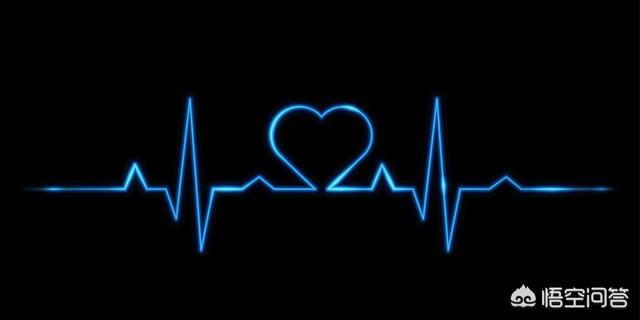 More importantly, the impact force of elevated blood pressure on the endothelium of blood vessels will cause damage to the endothelium of blood vessels, which is the basis for the occurrence of atherosclerosis, will cause changes in the structure of blood vessels, especially on the cardiovascular impact is greater, which causes the occurrence of coronary heart disease and so on.
More importantly, the impact force of elevated blood pressure on the endothelium of blood vessels will cause damage to the endothelium of blood vessels, which is the basis for the occurrence of atherosclerosis, will cause changes in the structure of blood vessels, especially on the cardiovascular impact is greater, which causes the occurrence of coronary heart disease and so on.
Therefore, hypertensive patients should also use heart rate control as a control indicator to keep the heart rate within the target range: the heart rate should be less than 80 beats per minute when hypertensive patients do not have comorbid cardiovascular disease, and the heart rate should be controlled at 55-60 beats per minute when cardiovascular disease has been comorbid.
It should be noted that: the heart rate mentioned here refers to the heart rate measured in a quiet state, the patient can count the pulse at home by way of determining the heart rate, the measurement should be quiet and rest for 5, minutes to take a sitting position, the arm elevated wrist and heart position flush, palms upward to 1 minute for the measurement of the time, make a good record.
I hope this answer can help you, welcome to click on the attention and leave a message, together to learn and exchange more health knowledge.
First of all, I do not agree with the over-emphasis on the heart rate of hypertensive patients, attention is over-emphasized, what do you say that the heart rate is greater than 80 times the cardiovascular risk of hypertensive patients to be higher than 89%, then 79 times and 81 times how big a difference, I have repeatedly emphasized that the author should not write their own do not understand more can not be made up, the popular science article is to the readers who are interested in medical knowledge to learn, rather than wrestle eyeballs, grabbing the attention. How about the results of the "teacher" Xingkoukaihe?
Recognized risk factors for cardiovascular disease in no one talked about fast heart rhythm, on the contrary there are cardiovascular diseases, including chronic hypertension (except hyperthyroidism, anemia, etc.) heart rate acceleration should be considered first of all, there is a change in the condition of the emergence of heart failure, if it is a long-term sinus tachycardia and can not find the cause of first of all, we should consider the cardiac vegetative nerve dysfunction caused by a transient or persistent sinus tachycardia. The same blood pressure has nothing to do with the heart rate, unless the sympathetic nerves are particularly excited, sensitive white coat hypertension.
For patients with high blood pressure, the first priority should be to lower the blood pressure rather than the heart rate. For many patients with high blood pressure due to sympathetic excitation and hypersensitivity, especially for young and middle-aged patients, the first choice of antihypertensive drug is betablocker, which is able to counteract adrenaline and norepinephrine released from sympathetic excitation to prevent contraction of small and medium-sized arteries to lower the blood pressure and to slow down the heart rate at the same time. If the single drug is not enough can be doubled, if you want to combine with other antihypertensive drugs should be considered not to cause heart rate acceleration of the sartans or Prilosec, try not to use diphenhydramine calcium conjugate antagonist.
That is, people without hypertension heart rate can be maintained at 60-70 / min is more ideal, long-term heart rate is too fast resulting in increased myocardial oxygen consumption will affect cardiac function. Having said that betablocker nolen is useful for people with or without hypertension with fast heart rate, including coronary angina, infarction or stent implantation, and even small incremental doses of treatment of heart failure, should be prevented from inducing asthma, and should be used with caution or contraindicated in patients with morbid sinus node syndrome or atrioventricular blockade.
It is common to see people ask whether betalock flat tablets are good or slow-release tablets are good, flat tablets have a shorter half-life, and routinely have to be taken twice a day, but many people only take one time to lower blood pressure effect is also good that one time. Extended-release tablets are composed of many particles capsule once a day is enough, and the dose can be cut open to eat, but betablockers are also a double-edged knife, so during the drug can be the elderly or suspected disease sinus, atrioventricular block should be followed up with ambulatory blood pressure and ambulatory electrocardiograms, because these often occur at night during sleep.
Total to a sentence more concerned about your blood pressure, blood fat, blood sugar up to standard or not, less listen to some messy things, never pick up the sesame lost watermelon. Some people are concerned about the relationship between heart rate and life expectancy, there is no direct relationship, (previous headlines I have written) the most common diseases in modern society is cardiovascular diseases and tumors, plaque in the arteries will never rupture because of the fast heart rate, tumors are more than okay, but to maintain a good state of mind and smooth emotions to prevent arterial spasm, plaque rupture and maintenance of cellular immunity, humoral immunity to prevent cancer It is more important.
2018.6.25
Dr. Duan Answers Questions Online 🍀Focus on High Blood Pressure Heart Rate 🍀
People with high blood pressure should not only focus on blood pressure, but also on heart rate management Only by keeping both blood pressure and heart rate in the right range can we ensure that the heart works longer and healthier!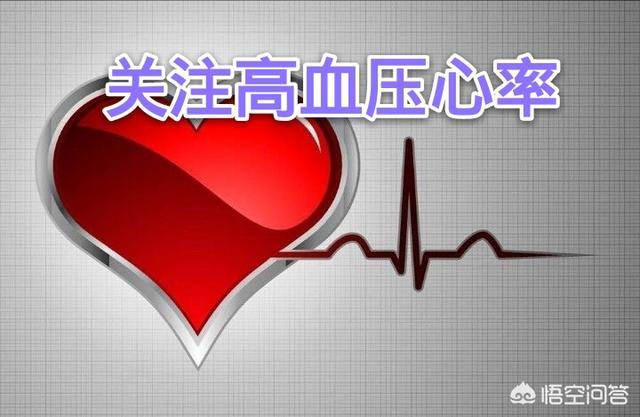
So what is the appropriate heart rate that people with high blood pressure should keep their heart rate at?
Resting state recommendations:
Resting heart rate ≤ 80 beats/min or 24-hour ambulatory heart rate ≤ 75 beats/min;
Exercise Status Recommendations:
(1) For healthy people, exercise at a heart rate that does not exceed 70-90% of your maximum heart rate, or 130-150 beats per minute;
(2) For those who suffer from high blood pressure, the prerequisite for exercise is to keep your blood pressure within the normal range, and at the same time to determine your heart rate standard according to your blood pressure grading, and it is best to keep your heart rate at 50-70% of your maximum heart rate.
①For those whose systolic blood pressure is less than 160mmHg, exercise is roughly calculated as [180 - your age], and the resulting value is your recommended heart rate for exercise;
② And for those who have 160mmHg<systolic blood pressure<180mmHg, you need to subtract 10-20 from [180 - age] according to your body's tolerance;
③ for blood pressure higher than 180/120mmHg friends, it is not recommended to carry out strenuous exercise, mainly to slow walking walks, activities basically does not cause fluctuations in the heart rate.
How to detect resting heart rate in hypertensive patients?
①Simple home tests can be done by auscultation of the heart or by touching the pulse;
② Avoid intense exercise and emotional fluctuations before measurement. It is recommended to rest for at least 5 minutes, and the measurement time should not be less than 30 seconds;
③ It is recommended that measurements be taken preferably early in the morning in a quiet state.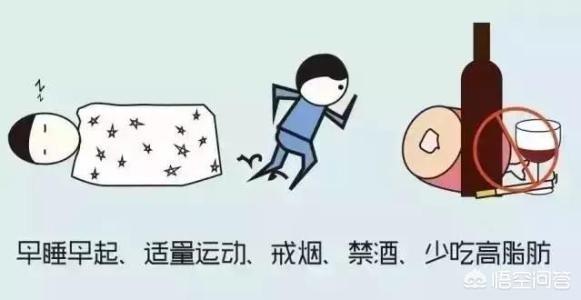
What are the dangers caused by a fast heart rate?
(1) Excessive heart rate can directly cause damage to arteries, the heart and other target organs such as the brain and kidneys;
Increased heart rate increases myocardial oxygen consumption, accelerates atherosclerosis, decreases plaque stability, and may lead to arrhythmias; therefore, it is important to manage heart rate in hypertensive patients!
What are the specific ways to manage heart rate in hypertensive patients?
The prerequisite for heart rate management is to analyze and eliminate the predisposing factors that cause tachycardia, and only by identifying the predisposing factors can they be corrected and treated.
① Lifestyle Intervention: Weight loss and fat reduction, weight control: including a rational diet structure, balanced nutrition, and reducing the intake of total calories and fatty foods;
② Choose the right amount of effective exercise: according to age, physical fitness and resting heart rate to choose their own appropriate aerobic exercise, such as jogging, tai chi, bicycles and so on;
(iii) Patients with combined hyperglycemia and hyperlipidemia should be treated comprehensively to lower lipids and glucose;
④ Reduce the sympathetic excitation of some foods, such as coffee, strong tea, tobacco and alcohol;
⑤ Pharmacological treatment: Choose antihypertensive drugs that have the effect of slowing down the heart rate, such as β-blockers (metoprolol, propranolol) and other interventions under the guidance of a doctor;
(6) Apply relevant proprietary Chinese medicines to stabilize the heart under the guidance of Chinese medicine practitioners or traditional Chinese medicines, such as baked licorice soup with additions and subtractions, for symptomatic adjustment and treatment.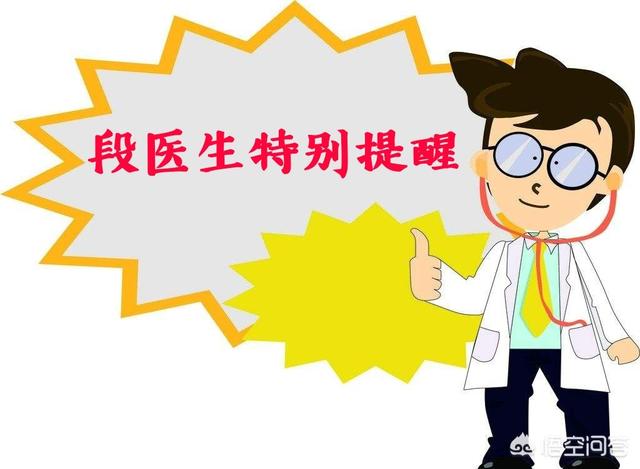
Dr. Duan's special reminder
① Exercise is for health, and regular and appropriate aerobic exercise can indeed improve cardiorespiratory function, but pay attention to the amount of exercise, excessive exercise is not only not beneficial to health, but also induces the occurrence of a variety of diseases;
② Any treatment is comprehensive, and hypertension is no exception, so it is important to avoid the influence of various triggering factors, be careful, weigh the pros and cons, and take precautions before they occur!
③We usually have nothing to record your heart rate, understand yourself from focusing on the heart rate;
④When you find a fast heart rate, first check if you are agitated, drinking alcohol, coffee, etc. If not, it is recommended to seek medical diagnosis. Fast heart rate can be more than a heart problem, it can also be due to thyroid, lungs, blood sugar, and so on.
👇Follow Dr. Duan for health and wellness👇.
This question and answer are from the site users, does not represent the position of the site, such as infringement, please contact the administrator to delete.